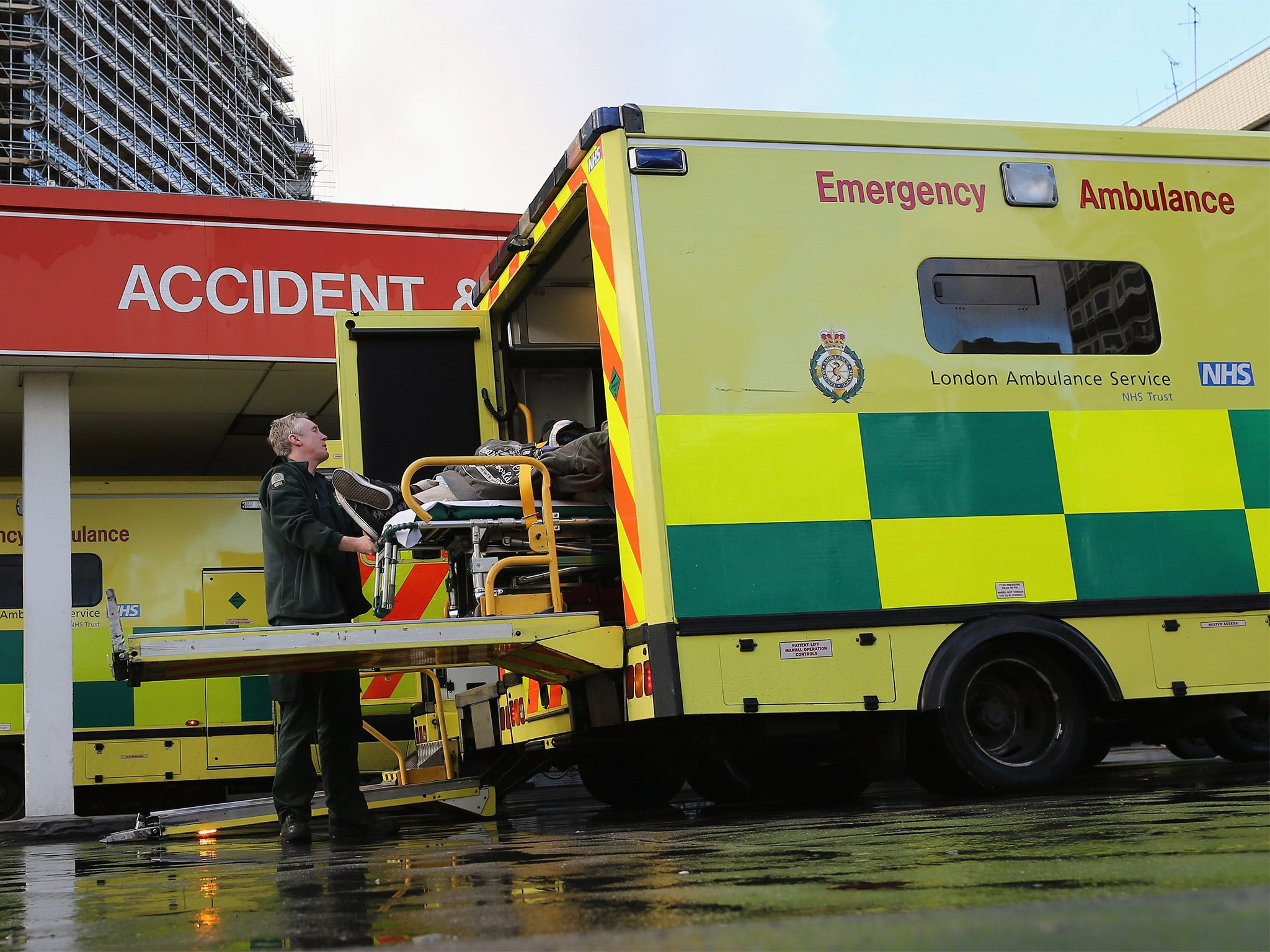Tens of thousands waiting too long for 999 calls to be answered in England
Exclusive: The number of emergency calls taking too long to be answers has increased 24-fold to 37,000

Tens of thousands of emergency calls are taking more than two minutes to be answered in England amid a crisis in the ambulance service, The Independent has learned.
More than 37,000 emergency calls took more than two minutes to answer in April 2022 – 24 times the 1,500 that took that long in April 2021, according to a leaked staff message.
April’s figures were slightly down compared to March, The Independent understands, when 44,000 calls took more than two minutes to answer.
The deterioration in 999 calls being answered within the 60-second goal comes as ambulance services across the UK have been placed under huge pressures.
The latest NHS data showed long delays in response times for ambulance services with stroke or suspected heart attack patients waiting more than 50 minutes on average.
Response times are being driven by ambulances being held up outside of A&Es because emergency departments are unable to take patients.
In March, there were likely to have been more than 4,000 instances of severe harm caused to patients as a result of ambulances being delayed by more than 60 minutes.
Data also showed 21,639 handover delays lasted for more than 120 minutes. This data is not published by NHS England.
In a message sent by West Midlands Ambulance Service (WMAS) on Thursday, staff were told new data from BT showed 37,107emergency calls in England took more than two minutes to answer in April. NHS England data shows there were 806,000 calls answered overall in April.
Of those calls that had delayed answers, West Midlands ambulance only accounted for eight, however some trusts accounted for more than 6,000 of the calls.
In the message, Jeremy Brown, emergency and urgent care director, said: “We all know how important it is to answer the phone very quickly, particularly in cases of cardiac arrest where every second counts. So for us to have so few over two-minute calls is a testament to the hard work of everyone.”
Following a meeting between healthcare leaders in the West Midlands and MPs and minister Edward Argar, an emergency meeting is being held in Shropshire to tackle worsening ambulance handover delays.
According to the WMAS message, more than 5,000 ambulance hours were lost outside of A&E departments in Shrewsbury and Telford, up from just hundreds in April 2021.
Martin Flaherty, managing director of AACE said: “It is no secret that UK ambulance services and their staff are under intense pressure, which is further evidence of the need to secure more funding for ambulance services as soon as possible, continue to find more ways to protect and care for our staff, prevent the depletion of our workforce and above all, eradicate hospital handover delays.
“AACE believes that whilst reasons such as overall demand and increasing acuity of patients are certainly contributory factors, the most significant problem causing these pressures remains hospital handover delays. These have increased exponentially and the numbers of hours lost to ambulance services is now unprecedented. For example, in some regions in March, ambulance trusts were losing up to one third of all the ambulance hours they were capable of producing due to hospital handover delays.”
Join our commenting forum
Join thought-provoking conversations, follow other Independent readers and see their replies
Comments



Bookmark popover
Removed from bookmarks